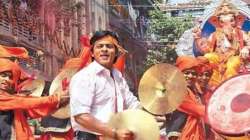Beyond religion: Shah Rukh Khan a beacon of unity in this diverse world
Shah Rukh Khan has faced a fair share of wrath and controversy throughout his career. The reasons for this animosity are complex and multifaceted, often stemming from a variety of factors such as religious identity, political affiliations, and even personal biases.

Ever since news agency ANI shared a video of Shah Rukh Khan visiting Shirdi, Twitter has been flooded with hate comments criticising Shah Rukh Khan. "This man must either convert to Hinduism or he should be banned from going into Hindu temples as a Muslim", a user wrote. Another called him Rahul Gandhi of Bollywood. "Just like Rahul Gandhi starts visiting every temple before elections, similarly, Shah Rukh Khan begins visiting temples before the release of his movies", he said, drawing a parallel between SRK and the former Congress president. Check out some of the hate comments against SRK below.
However, these criticisms are not new for SRK. He has faced a fair share of wrath and controversy throughout his career. The reasons for this animosity are complex and multifaceted, often stemming from a variety of factors such as religious identity, political affiliations, and even personal biases.
One source of criticism comes from the polarized nature of Indian society, where people tend to associate public figures with specific religious or cultural identities. Shah Rukh Khan, being a Muslim, has at times been subject to scrutiny based on his religious background. When he visits a temple, some may dismiss it as a promotional stunt or question his sincerity, while others might label him a "kattar Muslim" (hardliner) when he visits religious sites associated with Islam.
It's important to note that these reactions are often fueled by prejudice, intolerance, and a lack of understanding. However, SRK transcends religious boundaries in his stardom and represents a symbol of success achieved through talent and hard work. His story embodies the idea that in India, talent can overcome religious or cultural barriers to achieve widespread admiration.
He embraces a harmonious blend of cultures within his family. The actor is married to interior designer and entrepreneur Gauri Khan and their festivities are marked by equal enthusiasm for all celebrations. During Diwali, Shah Rukh shared a poignant black-and-white image, adorned with a red tika on his forehead.
Addressing the question of religious identity within his household, Shah Rukh Khan spoke openly about his diverse religious backgrounds. On a guest appearance on the reality show Dance Plus 5, he eloquently expressed, “Humne koi Hindu-Musalman ki baat hi nahi ki. Meri biwi Hindu hai, mai Musalman hoon. Aur mere jo bacche hain, wo Hindustan hain” (We have never discussed Hindu-Muslim. My wife is Hindu, I am a Muslim, and our children are Indians).
He further elaborated on the challenges his children faced in school, where they were required to state their religion. Shah Rukh shared an incident involving his daughter, who, inquiring about their family's religious affiliation, received a heartfelt response. SRK emphasized the simplicity and inclusivity of their perspective, stating, "Jab meri beti choti thi, usne aa ke pucha bhi mujhse ek baar, ‘papa hum kaun se religion ke hain?’ Maine usme ye likha ki hum Indian hi hain yaar, koi religion nahi hai. Aur hona bhi nahi chahiye" (When my daughter was young, she once came and asked me, 'Dad, which religion do we belong to?' I simply wrote in her form that we are Indian, we do not have a religion. And we shouldn't have one)."
Despite this, in a diverse and culturally rich country like India, where sentiments can be deeply rooted, public figures are often subjected to intense scrutiny. Social and political factors can amplify the criticism, turning personal choices or actions into points of contention. The words against SRK are not mere barbs; they are echoes of the larger societal struggles, the clashing of ideologies, and the unfortunate reality of preconceived notions that cloud judgment. Yet, amidst the storm, Shah Rukh Khan stands tall and his star continues to shine.